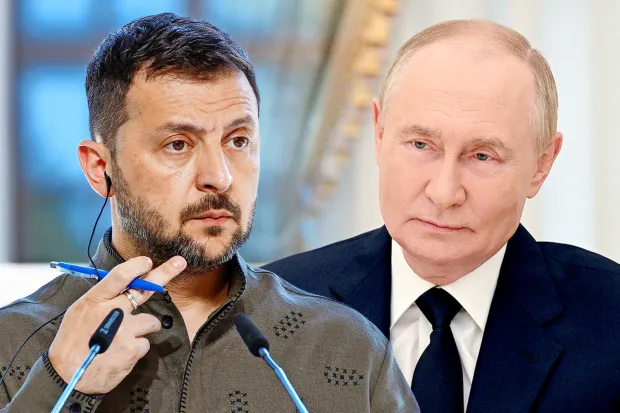Former U.S. President Donald Trump has escalated his criticism of Ukrainian President Volodymyr Zelenskiy, directly blaming him for the outbreak of the war with Russia. This statement, made during the PBD Podcast with Patrick Bet-David on Thursday, marks a significant shift in Trump’s rhetoric and suggests a potential radical change in U.S. foreign policy should he win the November 5 presidential election.

Trump’s comments go beyond his previous criticisms of Zelenskiy, whom he has often referred to as “the greatest salesman on Earth” for securing billions of dollars in U.S. military aid. In this latest interview, Trump explicitly stated, “He should never have let that war start. The war’s a loser.” This stance contradicts the widely held view that the conflict began with Russia’s invasion of Ukrainian sovereign territory in 2022.
The former president’s remarks indicate a possible dramatic shift in U.S. policy towards Ukraine and Russia if he returns to the White House. Trump has consistently criticized the extent of U.S. aid to Ukraine and has suggested that Ukraine might need to cede territory to Russia to achieve peace, a proposition that Kyiv firmly rejects.
While Trump acknowledged feeling “very badly” for the Ukrainian people, his comments imply a potential reduction or cessation of U.S. support for Ukraine in a second Trump administration. He has repeatedly claimed he could end the conflict before taking office in January, though he has not provided details on how he would achieve this.

These statements stand in stark contrast to the position of Vice President Kamala Harris, the Democratic nominee, who has pledged continued support for Ukraine and portrays a Ukrainian victory as crucial to U.S. national security interests. Harris has consistently criticized Trump for his perceived reluctance to stand up to Russian President Vladimir Putin.
Trump’s latest comments come despite a reportedly cordial meeting with Zelenskiy in New York last September, where the Ukrainian leader presented his “victory plan” to end the war. The divergence between this private interaction and Trump’s public statements highlights the unpredictable nature of his foreign policy approach.
As the 2024 presidential election approaches, Trump’s stance on the Ukraine-Russia conflict is likely to become a major point of contention in the campaign. His views signal a potential realignment of U.S. foreign policy priorities and alliances, raising questions about the future of American support for Ukraine and its implications for global geopolitics.



